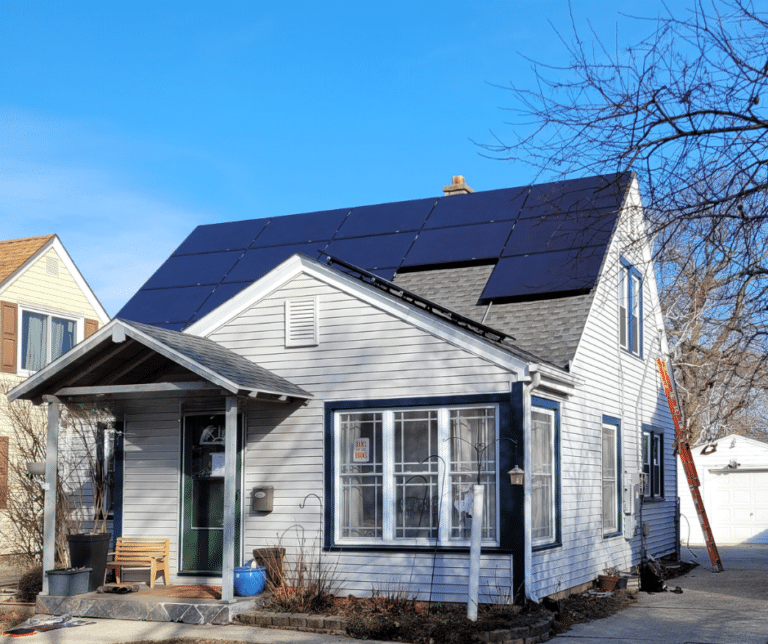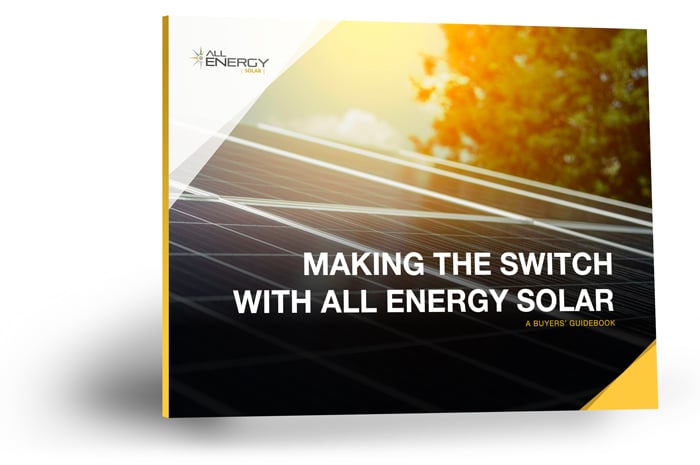If you’ve looked into going solar, you’re probably aware of some of the tax credits available for switching to clean, renewable solar. But you may be less familiar with one of the most powerful financial benefits available—net metering.
What is net metering?

Net metering is a billing mechanism applied to your electric energy usage that allows property owners who generate some or all of their electricity to use it anytime instead of only when it is generated. Utilizing a two-way meter installed by your utility company, property owners can track the energy they pull from the grid to power their home and any excess energy they push back to the grid when their demand is under their production levels.
A range of net metering in Wisconsin.
Although Wisconsin has had net metering regulations in place since 1982, when investor-owned utility companies were required to offer some form of net metering programs, there is a great deal of variance among what utility companies provide beyond the minimum requirements. Here’s a quick look at Wisconsin’s net metering landscape, including cooperatives and the state’s five largest investor-owned utility companies.
Energy cooperatives
Unfortunately, Wisconsin’s state net metering regulations do not apply to energy cooperatives. A great debate on the topic has been underway among many of these organizations (which you can read more about here.) However, you might be surprised to learn that nearly 80 percent of the 24 Wisconsin energy cooperatives across the state offer some form of net metering incentives to their members.
Alliant Energy
In compliance with state regulations, Alliant Energy purchases all excess energy generation at the retail rate up to the customer’s monthly usage. When the property owner’s production exceeds their monthly usage, Alliant applies a credit to their monthly bill.
WE Energies
Every month, WE Energies measures how many kilowatt-hours (kWh) of energy the property owner used versus how much they pushed back to the grid. In months where the property owner uses more energy than they delivered back to the grid, they’re billed for the difference. However, if the property owner’s product exceeds their use, WE Energies applies a buy-back rate formula based on the property owner’s billing plan.
Wisconsin Public Service (WPS)
Like the other companies on this list, WPS offers property owners a retail-rate credit for the energy they send back to the grid, which is reflected in their monthly bill. If a property owner’s solar energy production exceeds what they use in a month, WPS applies a credit to the property owner’s bill using a payout formula.
Madison Gas & Electric
Madison Gas & Electric (MG&E) offers a kWh credit for any month in which there is excess net production, and this amount is carried over to the next month. After years of net metering, M&E determines if the property owner is a net producer or net consumer. If a property owner’s net energy consumption versus their production is negative, they’re classified as a net consumer, and their balance carries over to the next month. However, if their net energy consumption versus production is positive, they are classified as a net seller and receive a payout based on MG&E’s buyback rate.
Xcel Energy
Although Xcel Energy serves only a tiny portion of the western part of Wisconsin, its net metering policy is one of the best in the state. Property owners with a solar PV system who Xcel Energy serves received a kWh credit for their monthly net excess production. At the end of each calendar year, Xcel Energy calculates any remaining credits and multiplies them by the customer’s retail rate. If that balance exceeds $2, Xcel issues a check for the value of the credits back to the property owner. In cases where the credit is under $2, the amount is applied to the customer’s account.
When talking with your installer, be sure that you understand your local utility company’s net metering plan and how it may impact the size of your system.
Added incentives for going solar
Wisconsin property owners that install a qualifying solar photovoltaic system also qualify for a $500 solar rebate through the state’s Focus on Energy program. Property owners installing a qualifying system can capitalize on the federal Investment Tax Credit (ITC), which currently offers a 30 percent tax credit for installing a qualifying solar PV system.
To learn more about the benefits of net metering in your area, contact an All Energy Solar representative today.


